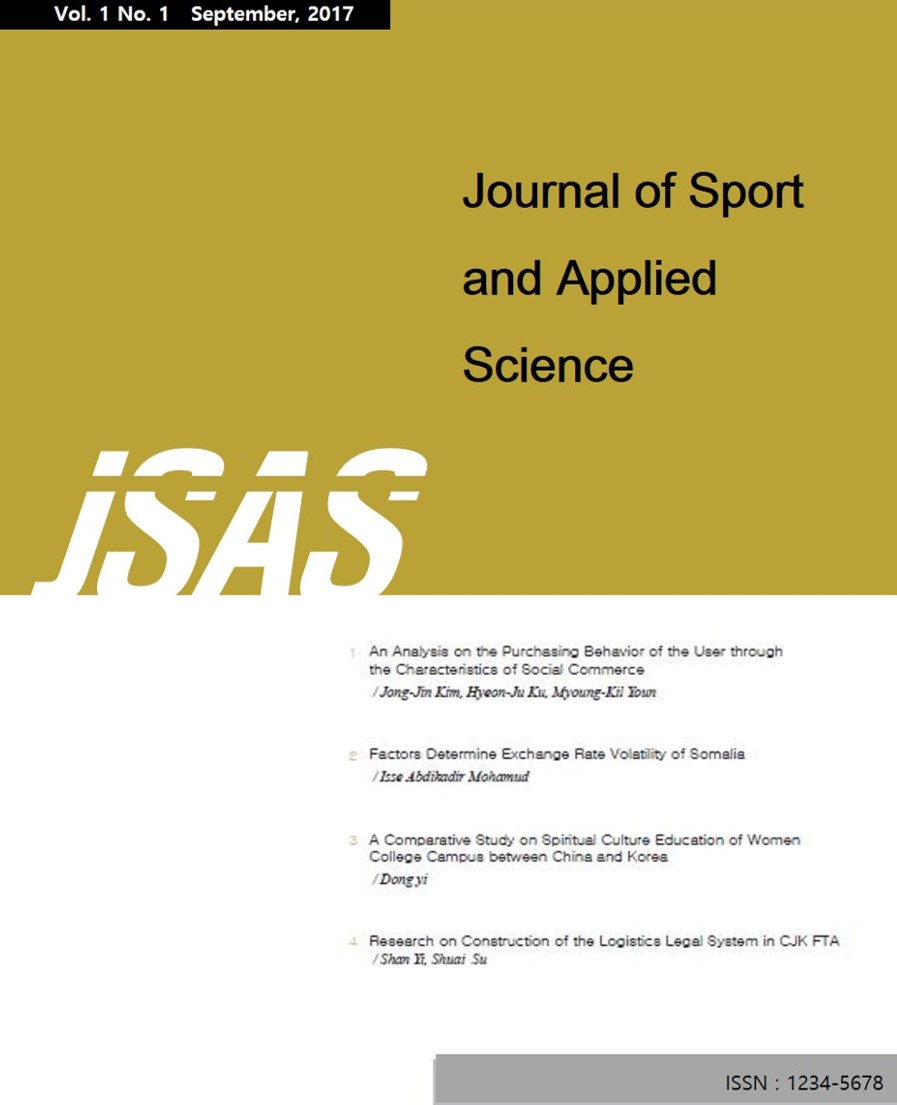 E-ISSN : 2586-6028
E-ISSN : 2586-6028
Vol.4 No.4
Abstract
Purpose: The purpose of this study is to identify the effect of 24-week sensory integration activity training on fitness of children with intellectual disability. Research design, data, and methodology: The subjects were 10 children with intellectual disability, 60 min training of sensory integration activity for 24 weeks. Obesity, cardiovascular endurance, muscular strength and muscle endurance were measured pre and post training. Frist, characteristics of subjects were measured with age, height, weight, IQ and SQ. Second, the subjects then performed sensory integration activity training for 24 weeks. Last, weight, strength, endurance, cardiovascular endurance and flexibility were measured. Data were calculated for average and standard deviation by SPSS 25.0 statistic program, and dependent sample t-test was processed to analyze the change between pre and post training. All statistical significance level was set to 0.5. Results: The result was shown that weight, strength and endurance changes between pre and post were significant. However, cardiovascular endurance, flexibility changes between pre and post were not significant. Conclusions: The lack of training frequency of 60 minute per week were acknowledged per week from this result. In future research, increased intensity and frequency are need for an in-depth and meaningful study and the measured data can be used basic information for the study.
Abstract
Purpose: This study started with interest in sport culture and is meaningful as an exploratory study to help with the basic understanding of sport culture research. Research design, data, and methodology: The approach of this study is the exploratory approach by literature reviews. This study carried out exploratory research on thinking about diversity of sports culture and the development process of sports culture by human history periods. Results: First, in thinking about cultural diversity, cultural absolutism and cultural relativism were identified. The characteristics of sports culture can identify universality, individuality and diffusion, and the attributes of sports culture included sharing, learning, accumulation, whole systematic relationship and change. Second, the characteristics of sports culture were identified by the approach of each historical era. The historical stages were divided into ancient civilizations, ancient Greece and Rome, middle ages and early modern period, and late modern period. Sports have historically been found to have a British-centered European origin or popularized in the United States. Conclusions: with the characteristics of modern sports culture, the globalization of sports culture, the prominence of sports industry and sports space marketing, and the symbiotic influence relationship of sports and mass media were examined and future directions were discussed.
Abstract
Purpose: Today, participation rate of water sport has been dramatically increased due to expansion of leisure time and concerns. The purpose of this study is to identify the effect of the exercise commitment of university water sport participants on re-participation intentions and to induce insights for expanding water sport industry. Research design, data, and methodology: Subjects were collected from undergraduate students who participated water sports class in University. The sample was extracted by purposive sampling of nonprobability sampling method. To achieve the purpose of the research, survey was processed to 281 subjects. SPSS Version 21.0 was used to analyze the data. All statistical significance level was set to p<.05. In terms of measurement, items of demographic information, exercise commitment, and re-participation intentions were utilized. Results: The results are as follows. Frist, in the difference in exercise commitment and re-participation intention according to the grade, only the re-participation intention was significant. The effects of the exercise commitment of university water sport participants on re participation intentions were statistically significant. Conclusions: The findings indicate the function of sport club participants' commitment towards water sports in promoting their intentions to re-participation. The study suggested insights and future directions for expanding water sport markets and related industry.
Abstract
Purpose: This study sought to explore the effects of air pollution on professional sports in South Korea. Research design, data, and methodology: The dependent variable, the number of attendances, was comprised of 2013-2017 K-league, 2015-2017 KBO, 2014-2017 KBL regular season games, resulting in 1,063, 2,121, 810 individual match-level observations, respectively. With the actual data collected from each place across the country, we created a categorical variable which identify the air quality index divided into four categories by K-eco (i.e., good, moderate, unhealthy, hazardous). To analyze data, ANOVA was employed. Results: First, there was a significant group effect on K-league attendance. Second, there was a significant group effect of KBO attendance. Lastly, there was a significant group effect on KBL attendance. Conclusions: Summary of above results showed that each professional sport leagues' attendance was significantly different depending on the levels of air pollution. Implications were also discussed. Keywords: air pollution, sport spectatorship, professional sports.













